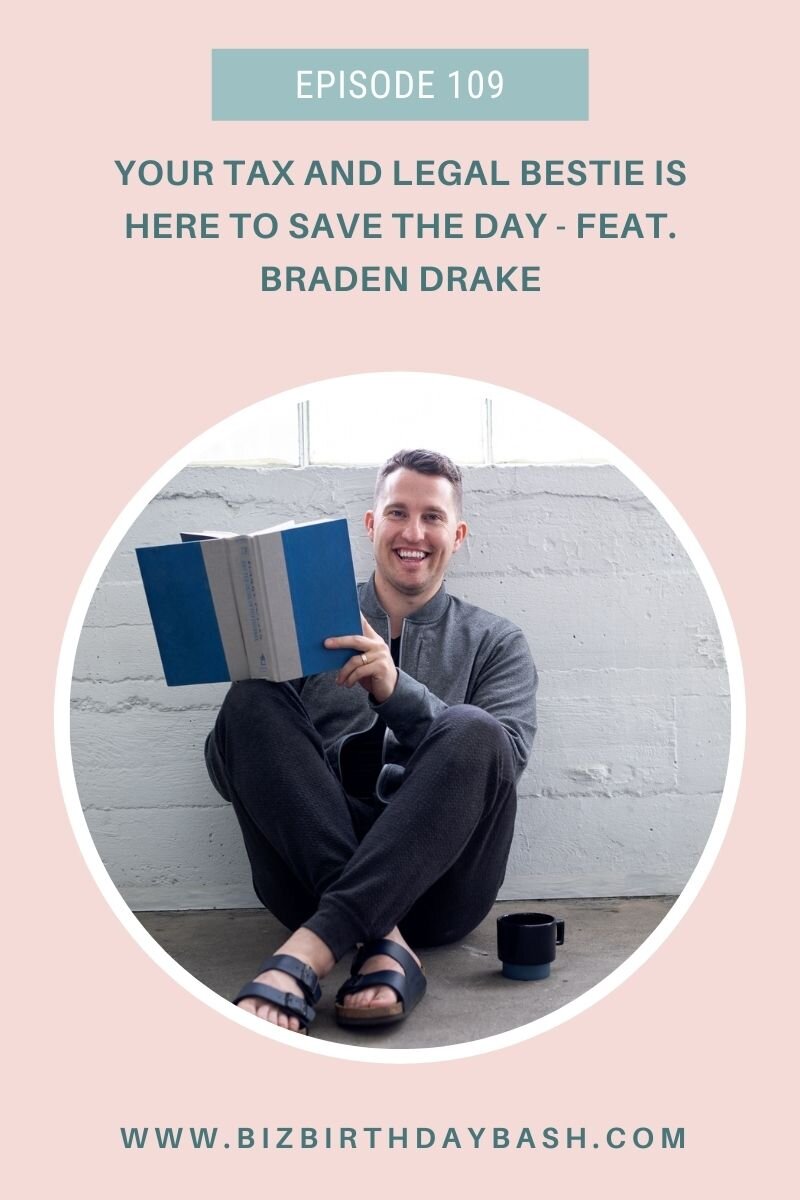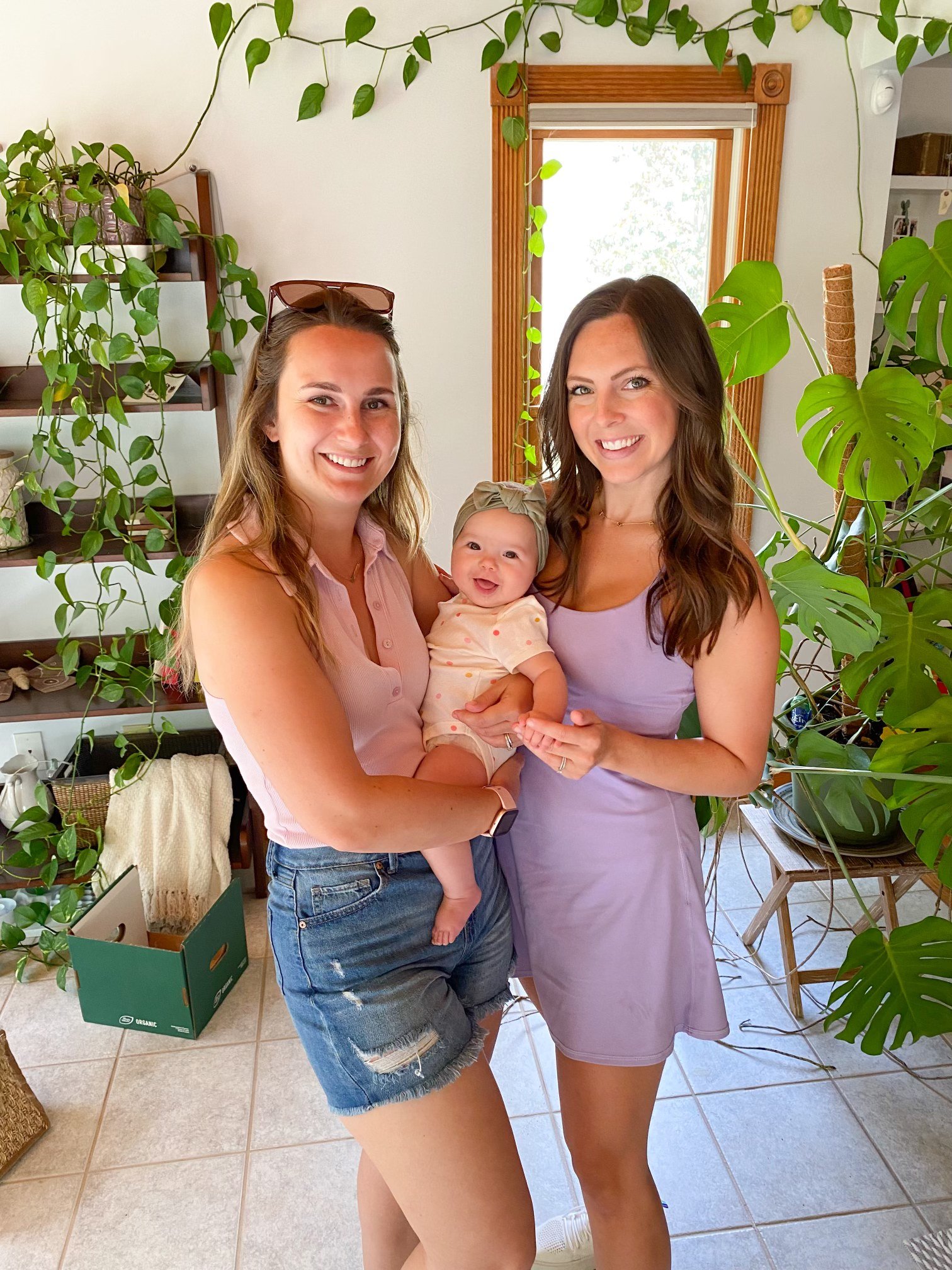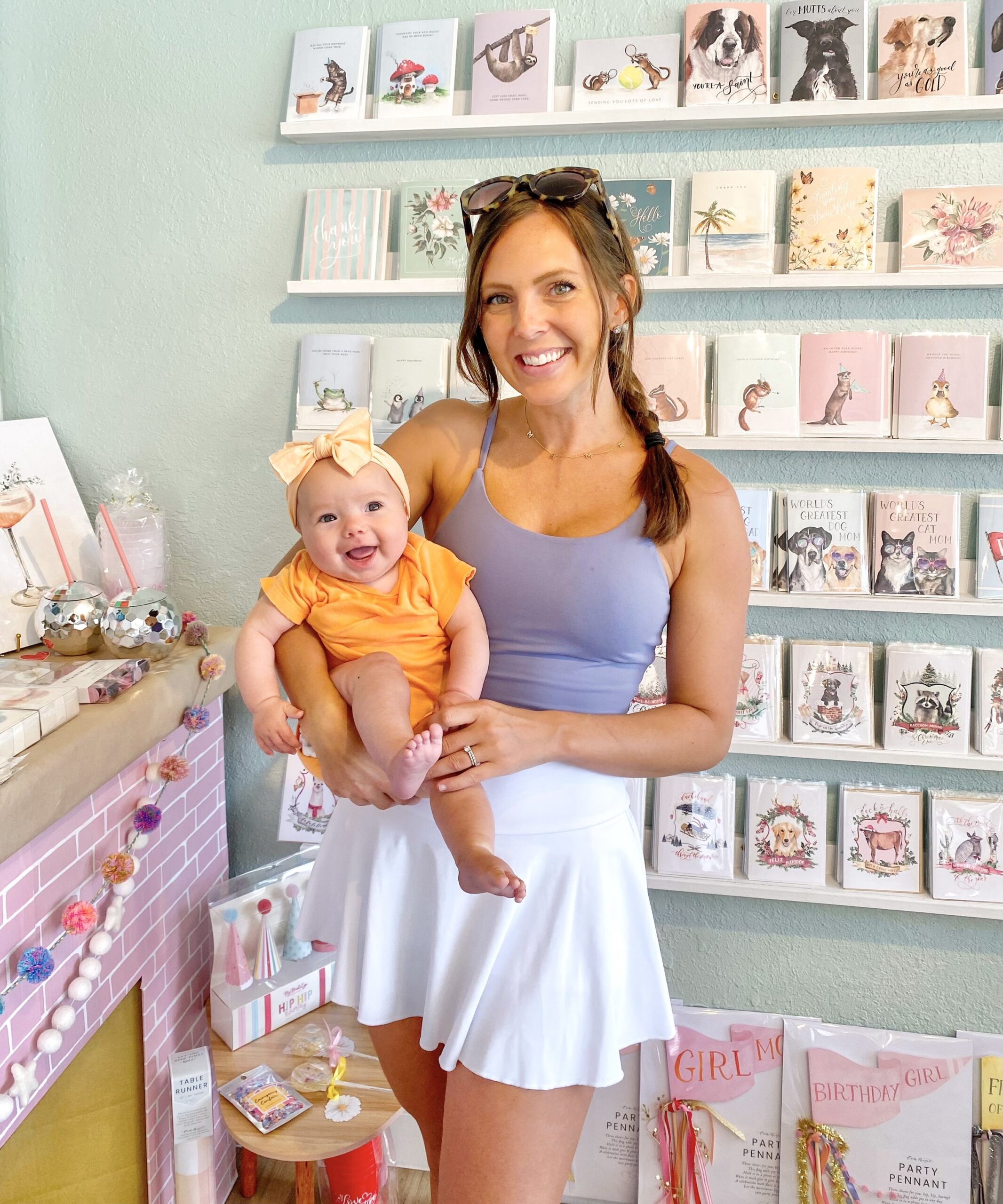It’s time to get your legal and tax sh*t legit once and for all! That’s why today we’re bringing in our friend Braden Drake who is a California licensed attorney and tax professional. His tagline is your gay best friend here to help you get your legal and tax sh*t legit. Braden works primarily with service-based, creative small business owners through his courses where he educates on contracts, business entities, cash flow, systems, and taxes. Listen in as uncovers the number one thing people tend to overlook when starting their own business. Plus, learn about the difference between a single-member LLC and a sole prop, bookkeeping best practices, and more!
Let’s be friends! Find us on Instagram http://instagram.com/bizbirthdaybash @bizbirthdaybash.
Grab your FREE Training — 4 Essentials You Need to Turn Your Biz into a Profit Party: https://bizbirthdaybash.com/free-training
Sign up for mockup madness (It’s FREE!)– https://www.bizbirthdaybash.com/mockup-madness
Tell us about the journey that led you here! How did you end up serving creatives and small biz entrepreneurs and assisting them with legal and tax knowledge?
Braden 4:36
I mean we could do a whole podcast episode on my journey. You know, it’s a whole fun story, but all kinds of spare you, all the details of how I ended up in law school, you know, we all go through undergrad, none of us know what we’re doing.
I kind of just ended up deciding to do it. And then, I made my way through some internships and I decided that working a normal law firm job was not going to be the path for me. I was like kind of miserable interning there. I said I don’t even want to imagine what it’s going to be like, like trying to work your 80 hours.
So I knew that I wanted to be self-employed and while I was waiting for my bar results, I got a part-time job at West Elm because. Was a lot of HGTV, interior design, like kind of creative stuff. And I often make a joke with all of my students, all my creative students. And college. I bought a DSLR at one point, but I like never learned how to like, do anything other than auto.
And I tried a whole bunch of different creative endeavors and none of them were really my passion, but they’re things I like to dabble in. So pretty early on, it seemed like a really good fit that I would use my law degree and my tax background to work in this niche because we could kind of like, you know, share some passions, but I’m leveraging my strengths to help you all leverage your strengths.
What is the #1 thing people tend to overlook when starting their own business?
Braden 6:16
Yeah. So it’s a great question. And we can tackle this really with almost every question we can tackle it from both a legal perspective and a tax perspective. Since I do teach on both of these topics. Um, but from a tax perspective, I would say not paying taxes, not paying quarterly taxes more specifically.
So we can always dive into that a little bit more on the legal side of things. I teach this concept, I call it the layers of legal protection for your business. I always tell people to think about like layers of clothing, right? So. It right now, it’s in the middle of summer. It’s very, very hot. Most places like you probably don’t have a whole lot of layers on.
If you’re going to go somewhere really cold and the wintertime you’re going to need some more layers, but that’s also dependent on how acclimated you are to the cold. So someone from Minnesota is probably going to need fewer layers than myself. Who’s down here in Southern California. When I go back home to Indiana for wintertime, I get cold very easily.
So the whole purpose of this analogy is the layers of protection. Are not only based on how long you’ve been in business, what kind of contracts you enter, but also your personal comfort level, because we all are, you know, a little bit different when it comes to risk aversion. So the primary layers of protection are insurance LLCs or business entities and contracts.
And the biggest mistake I see is people really just leaning on one of those things, thinking that it’s going to fully protect them in business. And ideally, you want all. That’s an excellent answer. And I know people can get just completely overwhelmed with all the things that they have to do at the beginning to get their business legit.
Is it best to go the LegalZoom route or DIY? I know from personal experience that people at your local county office are often super helpful!
Braden 8:16
Yeah. So I’m a big fan of like DIY thing, but with some help, right. I’m also a little bit biased because I offer paid solutions to all of these things, but I can like pretty much back up why I’ve created most of these paid solutions. Like most of us are not creating products, so we don’t think there’s a need in the market.
Right. My beef with legal zoom and I call it a beef because I complained about them on my podcast. All the time. People can go to some episodes if they want to hear some horror stories. For really the stuff that they charge you for it, like, I’ll give you one specific example. Like you can pay legal zoom to do your EIN for you, your employment identification number.
And you both probably know that this is free to do through the IRS website. If you go to the IRS website, they’re to ask you, what’s your business name, what’s your industry, you know, what’s your address? And guess what, if you go to legal zoom, you’re going to have to enter in the exact same information and the legal zoom I’m assuming is using some sort of computer algorithm to just transpose that information onto the IRS website.
It’s like, why are you going to pay them to do that when it’s for free? And that’s how a lot of their offerings are. And I find for most people. Then, how is actually not all that difficult. It’s more of the what and what steps do you need to take? Uh, also are you getting everything that you need? So if you’re gonna form an LLC, you need to have an operating agreement.
It’s very, very important. It’s basically a contract between you and your business. And a lot of these steps are left out. When you use online services, they also don’t advise you on how to keep your business structure and compliance. So I have a lot of students. About students who forgot to pay annual fees or annual taxes specifically for the LLC.
And they ended up having to pay a whole bunch of back taxes and it turned into a mess. So getting a little bit of professional help to figure out all those steps is in my opinion, is very helpful.
Can you break down the difference between a single-member LLC and a sole prop? Basically, explain it like I’m 5!
Braden 14:27
Yes. So I have a couple of different analogies for this. Like one of them is a science analogy, which don’t worry if you’re terrible at science. I also am terrible at science, but back in high school, I had, I almost said, professor, you don’t have professors in high school. I had a teacher. Her name was Mrs.
Wilson, and she is from Alabama. So she had a very thick accent. And I remember when she was teaching. My ptosis and meiosis. And I never really remember which one is which it doesn’t matter, but, um, she would always say, and now when we’re going through mitosis, these cells are going to be divided. And that just really stuck with me.
Right. But the whole point is like, you know, our cells have this ability to. Split in half. And then, you know, a bunch of other stuff probably happens that I don’t remember, but when we form an LLC, it’s the same thing. Like when we have a sole proprietorship, we are our business. Our business is us. There’s no separation.
This is why we can, even though it’s not a good idea, you can get away with using your personal bank account for your business. Don’t recommend it, but it’s not illegal. And. You basically there’s no, there’s no separation. Right? So when we form an LLC, our business literally splits off from ourselves. From ourselves like a dividing cell, that’s kind of complicated, but hopefully that makes sense.
So now you’re separate, you’re two separate entities. So there’s you over here? There’s your business over here? And this is why we have to have things like a business operating agreement because now we are running our business, but there needs to be a contract with the rules between us. We need to sign contracts and the name of our business.
With our LLC name, our business needs to own our bank account. If we get trademarks, the LLC should own the trademarks. Everything should be under the LLC. So that’s how the separation works. So that’s our first analysis. So the second one, the second analogy I was like to give people is, and I wrote about both of these in my book.
So these are like two of my fun stories I like to give. The second one is I always tell people to imagine like the bubble that Glenda floats in inside of the wizard of Oz, are you with me? Do you both know what I’m talking about? I love, I love the wizard of Oz as like a young guy. Should have been assigned to my mother, but anyway, so Glenda comes down in her magic bubble, but imagine like something representative of your business and this bubble.
So for me, I don’t work a lot with a lot of physical product. I would just think about like my computer or my podcasting equipment inside the bubble. So the bubble here represents your LLM. Right. And if someone ever sued you imagine whatever you’ve pictured inside of the bubble, like exploding, but the bubble is magical and it protects everything you have on the outside of that bubble from the shrapnel.
And so it protects all your personal assets. That’s the point of the LLC. So LLCs make us separate from our business. And they give us liability protection, which is not the case when we’re sole proprietors.
When is the right time to become an LLC and move away from a sole prop?
Braden 17:46
Yeah, so really there’s, it’s never too early to form an LLC. This is like, I actually, I recorded a podcast episode. I think I titled at the top 10 worst pieces of legal and tax advice I’ve seen in Facebook groups.
You both could probably help me collect some more pieces of bad advice which would address, but one of them is I always hear people say something like. My CPA told me not to form an LLC. Literally one person said my CPA told me not to form an LLC until I’m making $13,000, which was like the most arbitrary number, but I’ve seen all sorts of numbers thrown out there.
And none of that really makes sense. I actually kind of do give a revenue mark, but it is a little bit arbitrary.
Are there different tax implications for different kinds of LLCs?
Braden 21:21
So the first thing that a lot of people don’t understand and you kind of hinted at this is that an LLC is taxed the same.
Sole proprietorship. So there’s no tax difference. And a lot of people are confused by this. This is why they think they need to wait until some arbitrary figure to form an LLC. We form LLC is early for liability protection, but they do not change our taxes. Right. Even in California, where we have an $800 annual franchise tax, they call it a tax.
It’s really just an LLC fee. So I don’t even really count that it’s just a fee to have your LLC. So for the rest of us, LLCs are the tax to the same as sole props. If you already have a general partnership. So if you are in a business partnership with someone, but you’ve not formed what I call a formal legal entity, you have a general partnership when near general partnership forms an LLC, it’s still taxed the same way.
Right? So that’s the first thing we have to understand beyond that. Um, you can technically elect to have your. LLC is taxed as a C corporation. We never really do that. Um, I won’t even get into the weeds of like why, the only thing that’s really relevant is to know that typically that’s not an option until your business is making like multi-millions of dollars and you have a high personal net worth.
So at that point, just go hire an accountant and then. Meanwhile, for the rest of us, the question is really just LLC or S corporation.
Moving into the tax side of things as well…. What bookkeeping systems do you love and recommend?
Braden 35:41
So I have a love, hate relationship with most standard bookkeeping systems. So QuickBooks is the most common solution out there. Um, it’s a fabulous tool, but it’s a complicated tool. So I have this like personal theory that I like to talk about on social media a lot. And I always say. Complexity and systems is only as useful as our own ability to keep up with those systems.
I think a lot of systems, people like I’m a Virgo myself. So I love organizing and creating systems, but like my ADHD mind does not allow me to really maintain them. So as much as I love to create like 28 step workflows end up Sato, or like spend literally an entire weekend, setting up Asana projects, which I’ve done.
I’m not going to be able to maintain them. It’s too complicated. And people tend to do that with their bookkeeping as well. So I see a lot of new business owners get really excited. Maybe actually, no, they probably don’t get excited at all, but they download and they set it up, but then everything gets miscategorized and it’s confusing and they don’t want to open it and it’s all wrong.
And then they have to hire someone to fix it. So, I’m not saying that QuickBooks is not a good solution, but if you’re going to decide to use it, you need to take the time to learn how to use it. It’s very important. So what I do is I recommend a lot of new business owners just use a simple spreadsheet because at the end of the day, all the IRS cares about is how much income did you write?
And what are your deductible business expenses? So you just track them on a spreadsheet, call it a day. Once that gets too tedious, because you’re making too much money, which is a quality problem to have, or you have too many deductions, also a quality problem. Well, maybe not because you can’t, then we look into either leveling up to software or just hiring a bookkeeper.
Why is understanding your bookkeeping and numbers so important for anyone running their own business? Why do you think people are so intimidated by knowing the numbers?
Braden 36:53
Well, I’ll start with, I’ll start with your second question. Cause this is really kind of like a mindset question, right? So why are people so intimidated by learning their numbers? Well, I think first of all, there are a lot of people who are like, I’m not a math person. I’m not good at numbers, which I’m going to call BS on that the majority of the time, because we’re not like, no one’s asking you to do calculus, right?
Like to figure out your taxes, you got to add up deductions. be able to do addition, subtraction, which we can all do on a calculator. And the most complicated thing we ever needed to do is find percentages. Like I’m going to encourage you to figure out what your profit is, right? That’s a percentage. So the math, not that complicated.
Right? The other thing is, is it’s kind of like the head in the sand thing. Like people don’t want to look at the numbers because they’re struggling with personal finances and looking at their business finances. Might bring them to reality of like how little money they’re making, right? Like how much of a struggle it is right now, or it might tip them off to like, oh my goodness, I’m spending way too much on my business.
My profit isn’t that high. And those are not comfortable feelings, especially if we have any like financial stressors at home. So that’s something that we have to work on. I don’t do a lot of that in my programs. I recommend some like really great money mindset books. That’s kind of a starting point for a lot of people, but after we get over that, then we just have to learn the simple systems to look at our numbers and we need to do this for two reasons.
Right. So like, why do we need to look at our numbers? Well, the first reason is just compliance. I have to file our tax returns. You know, it’d be really easy if we wanted to, we could just take our Stripe report and report all of our income and call it a day, but we pay way, way too much in taxes. Right. So we have to track our business expenses if we want to take those deductions and save on taxes.
So that’s the first reason. Uh, the second reason is for strategy, right? So if you ever talk to people who are, uh, like certified financial officers, which isn’t really a thing, but just kind of like a designation that we give ourselves, then they’re gonna talk to a lot more about. Finance strategy rather than compliance stuff like looking at your profit margins, breakeven points, how much you should be charging, and all these kinds of strategic questions.
So if you’re not really digging into your numbers regularly, you might not realize that you’re way undercharging for that one specific thing. Or maybe what I see oftentimes as people will figure out they’re spending 70% of their time and their business. On their least profitable service. Let’s try to phase that one out and sell more of our really profitable thing instead.








+ show Comments
- Hide Comments
add a comment